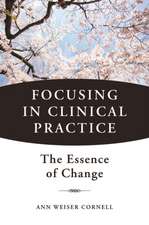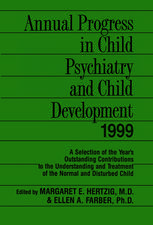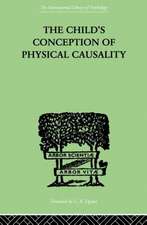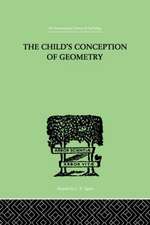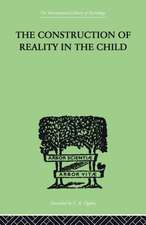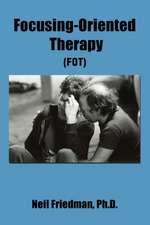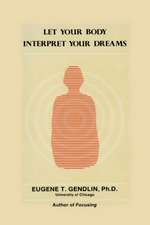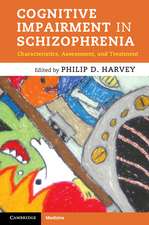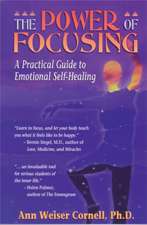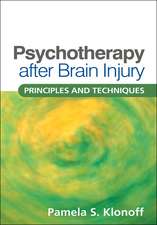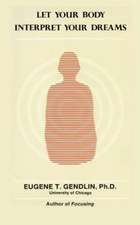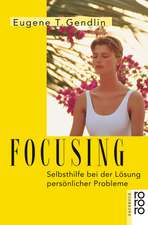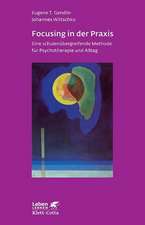Focusing-Oriented Psychotherapy: A Manual of the Experiential Method: The Practicing Professional
Autor Eugene T. Gendlinen Limba Engleză Paperback – 21 sep 1998
Examining the actual moment-to-moment process of therapy, this volume provides specific ways for therapists to engender effective movement, particularly in those difficult times when nothing seems to be happening. The book concentrates on the ongoing client therapist relationship and ways in which the therapist's responses can stimulate and enable a client's capacity for direct experiencing and focusing. Throughout, the client therapist relationship is emphasized, both as a constant factor and in terms of how the quality of the relationship is manifested at specific times. The author also shows how certain relational responses can turn some difficulties into moments of relational therapy.
| Toate formatele și edițiile | Preț | Express |
|---|---|---|
| Paperback (1) | 295.86 lei 3-5 săpt. | +21.57 lei 6-12 zile |
| Guilford Publications – 21 sep 1998 | 295.86 lei 3-5 săpt. | +21.57 lei 6-12 zile |
| Hardback (1) | 548.48 lei 6-8 săpt. | |
| Guilford Publications – 16 mai 1996 | 548.48 lei 6-8 săpt. |
Preț: 295.86 lei
Preț vechi: 311.43 lei
-5% Nou
Puncte Express: 444
Preț estimativ în valută:
56.61€ • 58.99$ • 46.88£
56.61€ • 58.99$ • 46.88£
Carte disponibilă
Livrare economică 13-27 martie
Livrare express 26 februarie-04 martie pentru 31.56 lei
Preluare comenzi: 021 569.72.76
Specificații
ISBN-13: 9781572303768
ISBN-10: 157230376X
Pagini: 317
Dimensiuni: 152 x 229 x 24 mm
Greutate: 0.45 kg
Ediția:New.
Editura: Guilford Publications
Colecția Guilford Press
Seria The Practicing Professional
ISBN-10: 157230376X
Pagini: 317
Dimensiuni: 152 x 229 x 24 mm
Greutate: 0.45 kg
Ediția:New.
Editura: Guilford Publications
Colecția Guilford Press
Seria The Practicing Professional
Public țintă
Postgraduate, Professional, Professional Practice & Development, and UndergraduateCuprins
1. Introduction
I. Focusing and Listening
2. Dead Ends
3. Eight Characteristics of an Experiential Process Step
4. What the Client Does to Enable an Experiential Step
to Come
5. What a Therapist Can Do to Engender an Experiential
Step
6. The Crucial Bodily Attention
7. Focusing
8. Excerpts from Teaching Focusing
9. Problems of Teaching Focusing during Therapy
10. Excerpts from One Client's Psychotherapy
II. Integrating Other Therapeutic Methods
11. A Unified View of the Field through Focusing and the
Experiential Method
12. Working with the Body: A New and Freeing Energy
13. Role Play
14. Experiential Dream Interpretation
15. Imagery
16. Emotional Catharsis, Reliving
17. Action Steps
18. Cognitive Therapy
19. A Process View of the Superego
20. The Life-Forward Direction
21. Values
22. It Fills Itself In
23. The Client Therapist Relationship
24. Should We Call It Therapy?
I. Focusing and Listening
2. Dead Ends
3. Eight Characteristics of an Experiential Process Step
4. What the Client Does to Enable an Experiential Step
to Come
5. What a Therapist Can Do to Engender an Experiential
Step
6. The Crucial Bodily Attention
7. Focusing
8. Excerpts from Teaching Focusing
9. Problems of Teaching Focusing during Therapy
10. Excerpts from One Client's Psychotherapy
II. Integrating Other Therapeutic Methods
11. A Unified View of the Field through Focusing and the
Experiential Method
12. Working with the Body: A New and Freeing Energy
13. Role Play
14. Experiential Dream Interpretation
15. Imagery
16. Emotional Catharsis, Reliving
17. Action Steps
18. Cognitive Therapy
19. A Process View of the Superego
20. The Life-Forward Direction
21. Values
22. It Fills Itself In
23. The Client Therapist Relationship
24. Should We Call It Therapy?
Notă biografică
Eugene T. Gendlin, PhD (1926–2017), taught at the University of Chicago from 1964 to 1995. He was the founder and, for many years, the editor of Psychotherapy: Theory, Research and Practice. Dr. Gendlin was honored numerous times for his development of experiential psychotherapy. He was the first recipient of the Distinguished Professional Psychologist of the Year award from Division 42 (Psychologists in Independent Practice) of the American Psychological Association. He was awarded the Viktor Frankl prize by the city of Vienna and the Viktor Frankl Family Foundation in 2008. In 2016 he was honored with lifetime achievement awards from the World Association for Person-Centered and Experiential Psychotherapy and Counseling and the United States Association for Body Psychotherapy.
Recenzii
Every once in a while you read something which makes what you already know wake up and come alive once more. This is certainly such a book for me. But it is also much more. The work of a clinician who is also a philosopher, Gendlin's experiential psychotherapy--a process constructivism--brings powerful experiential techniques to enliven therapeutic contact in whatever therapeutic orientation. Beginners and old hands alike will find it extremely valuable, offering as it does step-by-step guidance on innovative ways to help clients learn from their own inner wisdom. --Maureen O'Hara, PhD, Center for Studies of the Person
If you perceive Gene Gendlin as a person concerned exclusively with focusing, this book will change your mind. The book takes a broad and sweeping view of the whole domain of experiencing in psychotherapy. It shows how a wide variety of therapy technologies can be brought to bear in the service of a single central task, namely, that of fostering the quality of immediacy and livingness that is so necessary to the effectiveness of psychotherapy. Expect the book to provide an exciting in-depth challenge to you, whether you are an advanced student of psychotherapy or a practicing clinician. --Julius Seeman, PhD, Professor Emeritus in Psychology, Peabody College of Vanderbilt University
This is a work of theoretical and technical brilliance. At a time when therapists of all orientations are attending to the empathic and experiential aspects of therapy, Gendlin builds upon his own pioneering work to elucidate an important domain of therapeutic knowledge in a way that makes many other treatments of the topic seem superficial by comparison. This is one of the more unique and creative contributions to the psychotherapy literature in years. --Jeremy D. Safran, PhD, Professor and Director of Clinical Psychology, New School for Social Research
Gendlin offers a convincing argument and demonstration that it is attention to the experimental manner rather than the content that provides entry into the 'border zone' between the client's conscious and unconscious processing. This is a rich and clinically helpful book on a process-oriented approach to deepening clients' experience. It will be of great use to clinicians of all orientations in providing detailed accounts of how to deepen and enliven clients' bodily felt experience in order to facilitate the construction of new meaning. This book represents a major contribution to the effort to understand the process of change in psychotherapy. --Leslie S. Greenberg, PhD, Professor of Psychology, York University, Toronto, Canada
-If you perceive Gene Gendlin as a person concerned exclusively with focusing, this book will change your mind. The book takes a broad and sweeping view of the whole domain of experiencing in psychotherapy. It shows how a wide variety of therapy technologies can be brought to bear in the service of a single central task, namely, that of fostering the quality of immediacy and livingness that is so necessary to the effectiveness of psychotherapy. Expect the book to provide an exciting in-depth challenge to you, whether you are an advanced student of psychotherapy or a practicing clinician. --Julius Seeman, PhD, Professor Emeritus in Psychology, Peabody College of Vanderbilt University
This is a work of theoretical and technical brilliance. At a time when therapists of all orientations are attending to the empathic and experiential aspects of therapy, Gendlin builds upon his own pioneering work to elucidate an important domain of therapeutic knowledge in a way that makes many other treatments of the topic seem superficial by comparison. This is one of the more unique and creative contributions to the psychotherapy literature in years. --Jeremy D. Safran, PhD, Professor and Director of Clinical Psychology, New School for Social Research
Gendlin offers a convincing argument and demonstration that it is attention to the experimental manner rather than the content that provides entry into the 'border zone' between the client's conscious and unconscious processing. This is a rich and clinically helpful book on a process-oriented approach to deepening clients' experience. It will be of great use to clinicians of all orientations in providing detailed accounts of how to deepen and enliven clients' bodily felt experience in order to facilitate the construction of new meaning. This book represents a major contribution to the effort to understand the process of change in psychotherapy. --Leslie S. Greenberg, PhD, Professor of Psychology, York University, Toronto, Canada
A fine philosophical and practical contribution to the field of experiential psychology. Gendlin's perspective is, as always, fresh, informative, and open to the mystery and wisdom of the total person.
--Journal of Supervision and Training in Ministry, 8/12/1998ƒƒA clear, detailed, and sensitive examination of what goes on in the therapeutic process and in the process of transformation.
--Common Boundary, 8/12/1998Descriere
Examining the actual moment-to-moment process of therapy, this volume provides specific ways for therapists to engender effective movement, particularly in those difficult times when nothing seems to be happening. The book concentrates on the ongoing client therapist relationship and ways in which the therapist's responses can stimulate and enable a client's capacity for direct experiencing and ""focusing."" Throughout, the client therapist relationship is emphasized, both as a constant factor and in terms of how the quality of the relationship is manifested at specific times. The author also shows how certain relational responses can turn some difficulties into moments of relational therapy.




